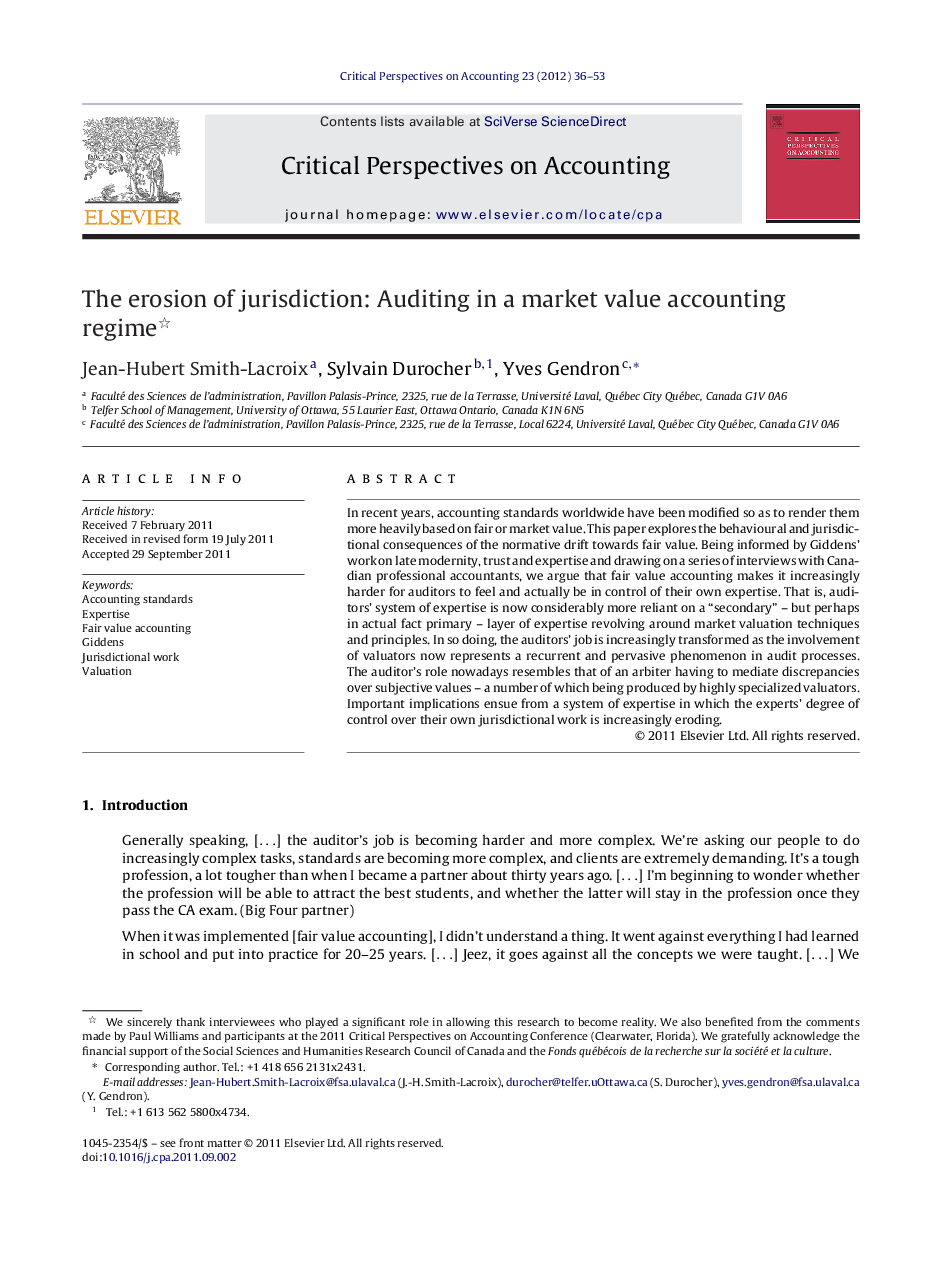| Article ID | Journal | Published Year | Pages | File Type |
|---|---|---|---|---|
| 1000881 | Critical Perspectives on Accounting | 2012 | 18 Pages |
In recent years, accounting standards worldwide have been modified so as to render them more heavily based on fair or market value. This paper explores the behavioural and jurisdictional consequences of the normative drift towards fair value. Being informed by Giddens’ work on late modernity, trust and expertise and drawing on a series of interviews with Canadian professional accountants, we argue that fair value accounting makes it increasingly harder for auditors to feel and actually be in control of their own expertise. That is, auditors’ system of expertise is now considerably more reliant on a “secondary” – but perhaps in actual fact primary – layer of expertise revolving around market valuation techniques and principles. In so doing, the auditors’ job is increasingly transformed as the involvement of valuators now represents a recurrent and pervasive phenomenon in audit processes. The auditor's role nowadays resembles that of an arbiter having to mediate discrepancies over subjective values – a number of which being produced by highly specialized valuators. Important implications ensue from a system of expertise in which the experts’ degree of control over their own jurisdictional work is increasingly eroding.
► Explores the behavioural and jurisdictional consequences of drift towards fair value. ► Predicated on a series of interviews with Canadian professional accountants. ► Fair value accounting challenges auditors being in control of their own expertise. ► Auditors’ system of expertise is now considerably reliant on a “secondary” layer of expertise. ► Highlights that auditors’ degree of control over their jurisdictional work is eroding.
